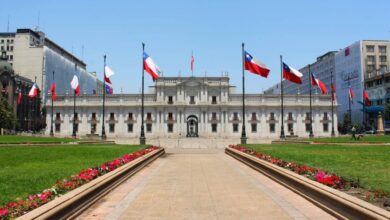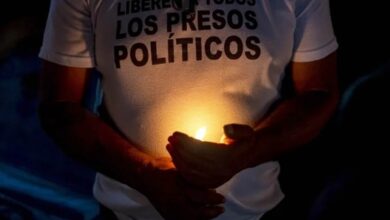What is behind the demonstrations in Nicaragua?
Almost a month after the start of the demonstrations, the crisis in the Central American country does not seem to improve

"In Nicaragua, the regime is using disproportionate and pointless violence to suppress the citizen protest led by young people being massacred by paramilitary and police forces". That was the message with which the writer and former vice-president of Nicaragua, Sergio Ramírez, initiated his polemical column of opinion in El País, the Spanish newspaper.
Leer en español: ¿Qué hay detrás de las manifestaciones en Nicaragua?
It is precisely this fragment that denounces the reality that Nicaragua has been living for a few weeks. The struggle between the government forces led by the president, Daniel Ortega, and the hundreds of protesters who took to the streets since last April, has been the subject of debate among analysts, media and experts in international politics.
What is the reason for the protests?
The beginning of the civic march in Nicaraguan streets was the result of Daniel Ortega's controversial decision to implement a Social Security reform. The law established a 5% decrease in the total amount of pensions, as well as the substantial growth of contributions from 6.25% to 7% by workers to said social benefit.
However, on April 23, the Nicaraguan president decided to abolish said law due to the low "viability" of the same. So, why do the protests still persist?
It should be noted that most of the protesters are university students who, for the moment, do not contribute to the Social Security of the country. By the same token, several experts consider that the legislation was only the straw that broke the camel's back in an "authoritarian, dynastic and undemocratic" country.
"It is not about the pension reform, but about the general panorama", said Hajo Lanz, the representative of the German Friedrich Ebert Foundation (FES) for Costa Rica, Nicaragua and Panama, in an interview for DW. "I manifest myself because I want a Nicaragua without dictatorship. It is not fair that our country continues suffering for a government that represses, that does not respect the rights of the people", said one of the young protesters to El País.
"Petty people"
However, the situation does not seem to improve, especially with the constant attacks that the Nicaraguan government is carrying out, with Rosario Murillo, vice president and wife of Daniel Ortega, at the head. In the first days of the protests, for example, Murillo did not hesitate to label the demonstrators as "toxic, bad children, and petty people."
"So much blood shed and it is not enough, they look like vampires claiming blood to nourish their political agenda, to feed themselves because the vampire feeds on blood, he believes that with this he achieves progress in his political agendas," said Nicaraguan politics bluntly.
According to the student group Movimiento 19 de Abril, the executive has ordered to criminalize the protests in order to appease the demonstrations, through the trial and imprisonment of several of its opponents. Under the accusations of being "direct co-authors of the crime of conspiracy to execute riot", the judiciary will judge three of the young people linked to the protests. "It wants to neutralize and criminalize the right to civic protest against the dictatorial regime of Daniel Ortega", said members of the movement.
What about the victims?
Almost a month has passed since the beginning of the revolts in Nicaragua, and the number of victims is increasing every day.
The death of a journalist during his work, as well as that of a teenager, have been the reflection of a wave of violence unprecedented in the mandate of the leader of the Sandinista National Liberation Front.
However, there is a word struggle between the Nicaraguan Government and NGOs, in relation to the number of wounded and dead resulting from the demonstrations. For example, the Nicaraguan Center for Human Rights (Cenidh) has released a figure of approximately 45 dead and nearly 400 injured, while the Government only accounts for 10 people killed.
International reaction
Of course, the world has not been alien to Nicaraguan news. The General Director of Foreign Policy of the Ministry of Foreign Affairs of Costa Rica, Christian Guillermet, questioned the existing censorship by the National Government towards the media.
In response, the Ministry of Foreign Affairs of Nicaragua responded with a harsh press release, asking Guillermet and Costa Rica to stay out of the situation. "The particularities of our internal policy and the circumstances in which our government makes State decisions not with competition neither from the State nor from the Government of Costa Rica", they wrote.
On the other hand, on May 7, in the midst of a speech before the Organization of American States (OAS), the Vice President of the United States, Mike Pence, spoke of the existence of a "dark cloud of tyranny" over Nicaragua. In addition, he condemned the "repressive" and "lethal" action of Ortega on the demonstrators.
Latin American Post |
Translated from “ ¿Qué hay detrás de las manifestaciones en Nicaragua?”





